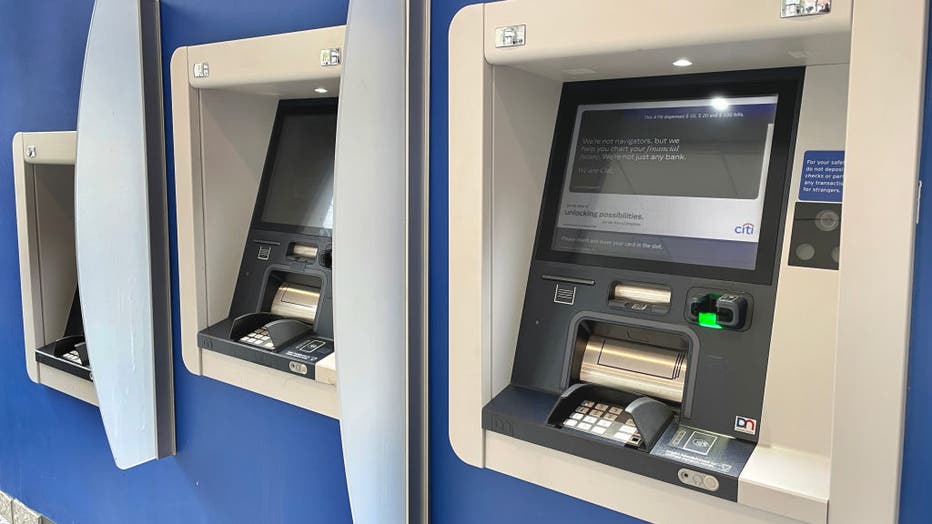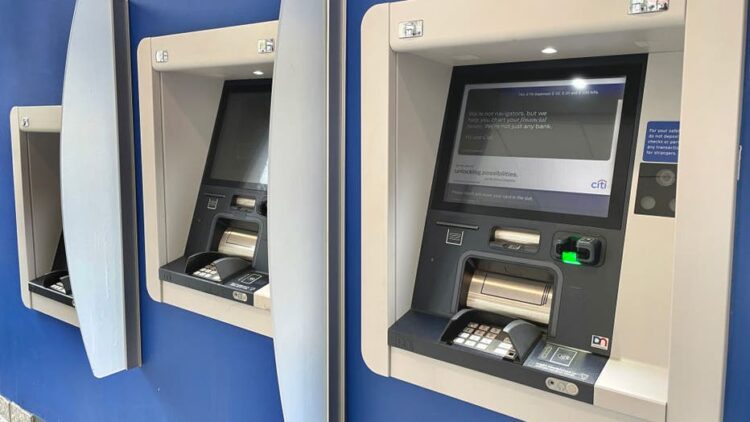Expert on retirement savings
Indira Venkat serves as the Senior Vice President of Research at AARP, she joins LiveNOW from FOX to discuss a recent survey that found more than 20% of adults ages 50 and older have no retirement savings. Venkat explains how Americans are worried about covering basic expenses.
The Brief: A new financial report predicts the extinction of physical bank branches in the U.S. by 2041 if current trends continue.Over 1,600 branches have been closing annually since 2018, with California, Florida, and Illinois leading in closures.As online banking rises, 39% of Americans still trust banks with physical branches, using them for deposits, advice, and withdrawals.
LOS ANGELES – According to new data analyzed by Self Financial, an average of 1,646 bank branches have closed each year since 2018. States like California, Florida, and Illinois have been hit hardest, with California seeing over 1,100 closures in the last decade.
The decline has accelerated in recent years, with the COVID-19 pandemic contributing significantly to the shift toward online banking.
The data comes from a study of commercial banking trends provided by the Federal Deposit Insurance Corporation (FDIC). As of 2022, the U.S. had 69,590 bank branches, a sharp drop from 82,461 branches in 2012. If this trend continues, experts project that physical bank branches may become extinct by 2041.
Why are so many bank branches closing?
There are a variety of factors at play, including a shift toward online and mobile banking, increased automation in financial services, and efforts by banks to cut costs and streamline operations. The pandemic accelerated this trend, with many customers preferring the convenience of digital banking over visiting branches.
Despite this shift, physical bank branches still hold significance for many Americans. A survey conducted by Self Financial found that 39% of respondents trust banks with physical branches more than online-only institutions. Additionally, many customers continue to rely on in-person services like making cash deposits, speaking to advisors, and withdrawing money.

Man withdrawing money from his bank account and retrieving the cash at an ATM machine in a bank lobby.
Which states are most affected by bank closures?
California leads the nation with 1,114 bank branch closures in the last 10 years, followed closely by Florida (1,091 closures) and Illinois (858 closures). Meanwhile, states like Nebraska and North Dakota have fewer people per branch and are less affected by closures. In Hawaii, however, there are almost 9,800 people per branch, indicating a lack of access to physical banking services.
What does the future hold for bank branches?
The study projects that if the current rate of decline continues, the U.S. could lose its last physical bank branch by 2041. While this prediction is based on current trends, many experts argue that brick-and-mortar branches may continue to exist in some form, albeit in smaller numbers or in specialized roles.
What do Americans think about the shift to digital banking?
Self Financial’s survey revealed that 69.9% of Americans believe the current banking system needs to change, with nearly 40% stating they trust physical branches more than online banks. However, the increasing popularity of online and contactless banking suggests that many consumers are adapting to the shift.
The Source This article is based on a report from Self Financial, utilizing data from the Federal Deposit Insurance Corporation and survey results from more than 1,000 Americans. The original report can be found here.
Source link : http://www.bing.com/news/apiclick.aspx?ref=FexRss&aid=&tid=66e3d9ee2ff549b2848bcdc17c0963da&url=https%3A%2F%2Fwww.fox4news.com%2Fnews%2Fus-bank-branches-predicted-to-disappear-by-2041&c=3409468546068199769&mkt=en-us
Author :
Publish date : 2024-09-12 15:18:00
Copyright for syndicated content belongs to the linked Source.
